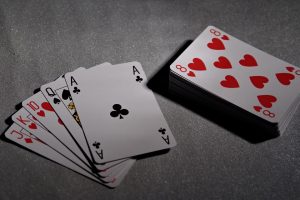 The rule says: “To achieve mastery, you need 10,000 hours of deliberate play.” What exactly is deliberate play? Erikson stated that it is not enough to simply use a skill many times. How you practice determines whether you reach a high level or not. There are certain quality components:
The rule says: “To achieve mastery, you need 10,000 hours of deliberate play.” What exactly is deliberate play? Erikson stated that it is not enough to simply use a skill many times. How you practice determines whether you reach a high level or not. There are certain quality components:
- Break down skills into smaller parts and develop them
- Continuously develop the skill at increasingly complex levels
- Be attentive and mindful of the feedback from your mistakes and maintain the intention to keep moving towards mastery
It becomes very clear what deliberate play is: it is meticulous effort with the goal of thoroughly analyzing a skill and mastering each part of it.
Such advice works perfectly for learning a musical melody, but what about poker? In poker, there is no such thing as practice. You can only somehow perform (unless you play with fake money). A pianist can rehearse their performance hundreds of times before a recital at Carnegie Hall, but a player cannot try to take a shot against Jungleman unless they are actually playing against him. Or is it possible?
This question has long troubled me. What is practice in a game where everything is your performance? Maybe poker is some kind of exception to traditional ideas of mastery? In the end, I concluded that although poker has certain nuances unique to it, other rules should apply as in any other field. Poker has its own additions when it comes to deliberate practice, such as learning or watching videos (we discussed this earlier). But that is not enough.  The only action that clearly helps improve your results is deliberate play. Playing poker is practice. Every session where you play with full focus on your mistakes and try to learn from them, where you actively strengthen your weak points (e.g., taking more risks, playing more conservatively, or learning to play deep-stacked), such a session is deliberate.
The only action that clearly helps improve your results is deliberate play. Playing poker is practice. Every session where you play with full focus on your mistakes and try to learn from them, where you actively strengthen your weak points (e.g., taking more risks, playing more conservatively, or learning to play deep-stacked), such a session is deliberate.
So, it is not enough to just grind for 10,000 hours. It has to be active play. You need to hear the feedback coming from poker and use it to make adjustments to your game. If you want each session to bring you closer to your goal, it has to be deliberate, smart, with measured efforts to track and improve your weaknesses. Of all the players quickly moving up the limits, I have seen only two types: the first invest many hours in a short time, and the second are strongly determined to improve and track their skills. Experience and determination are the only promising paths to mastery.





